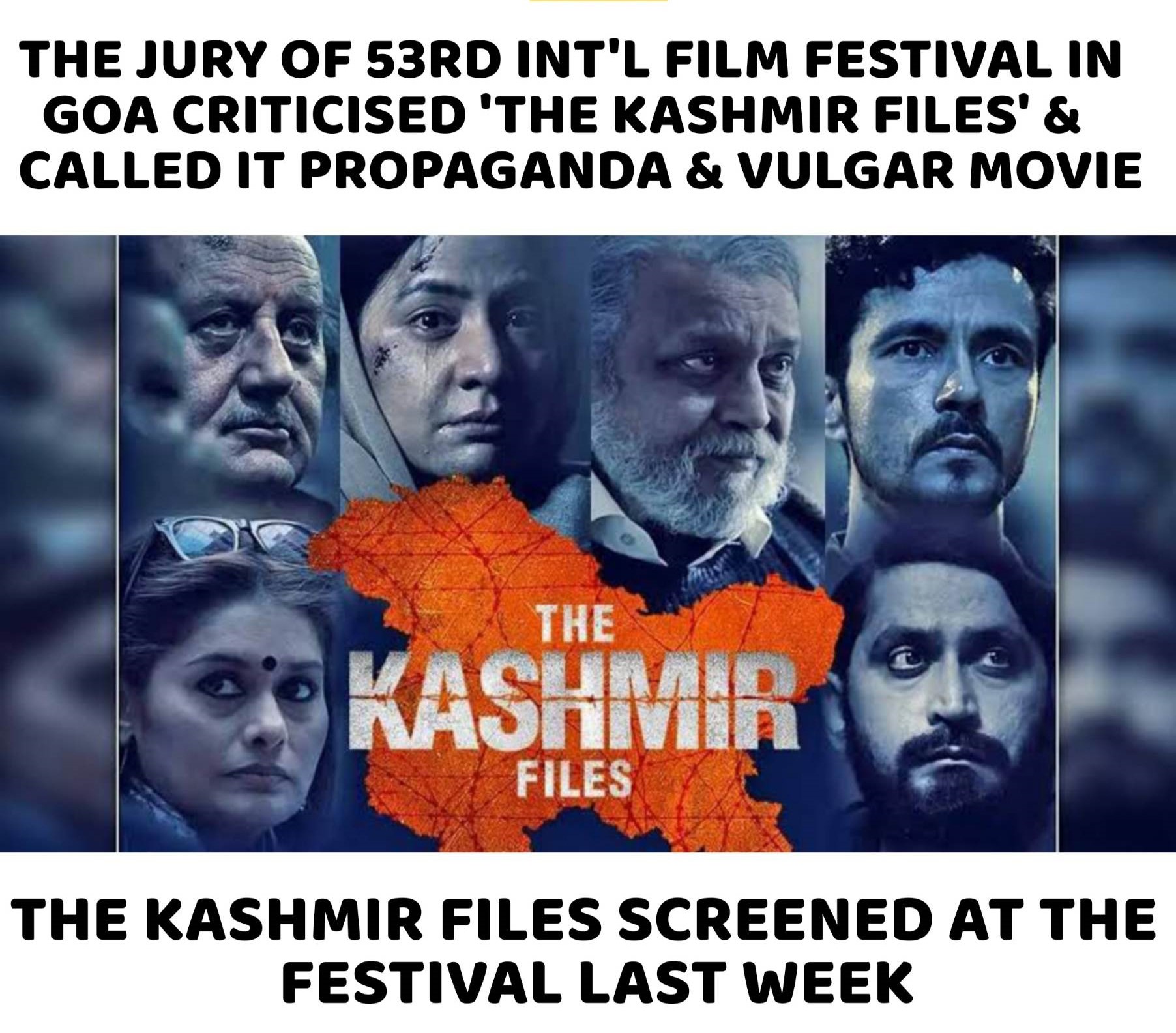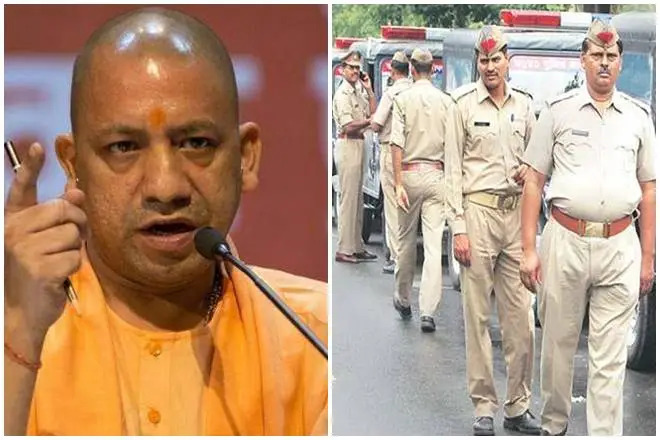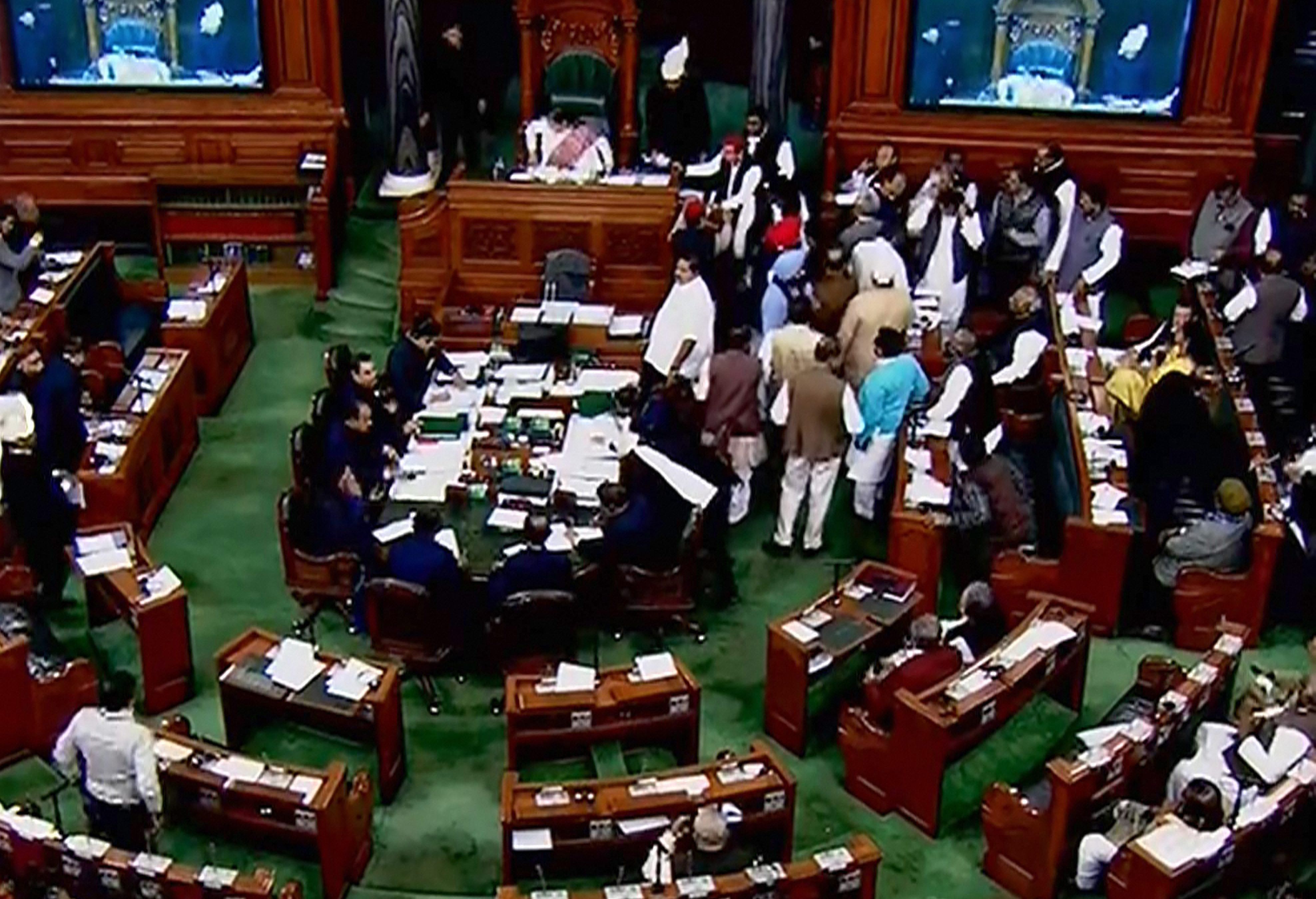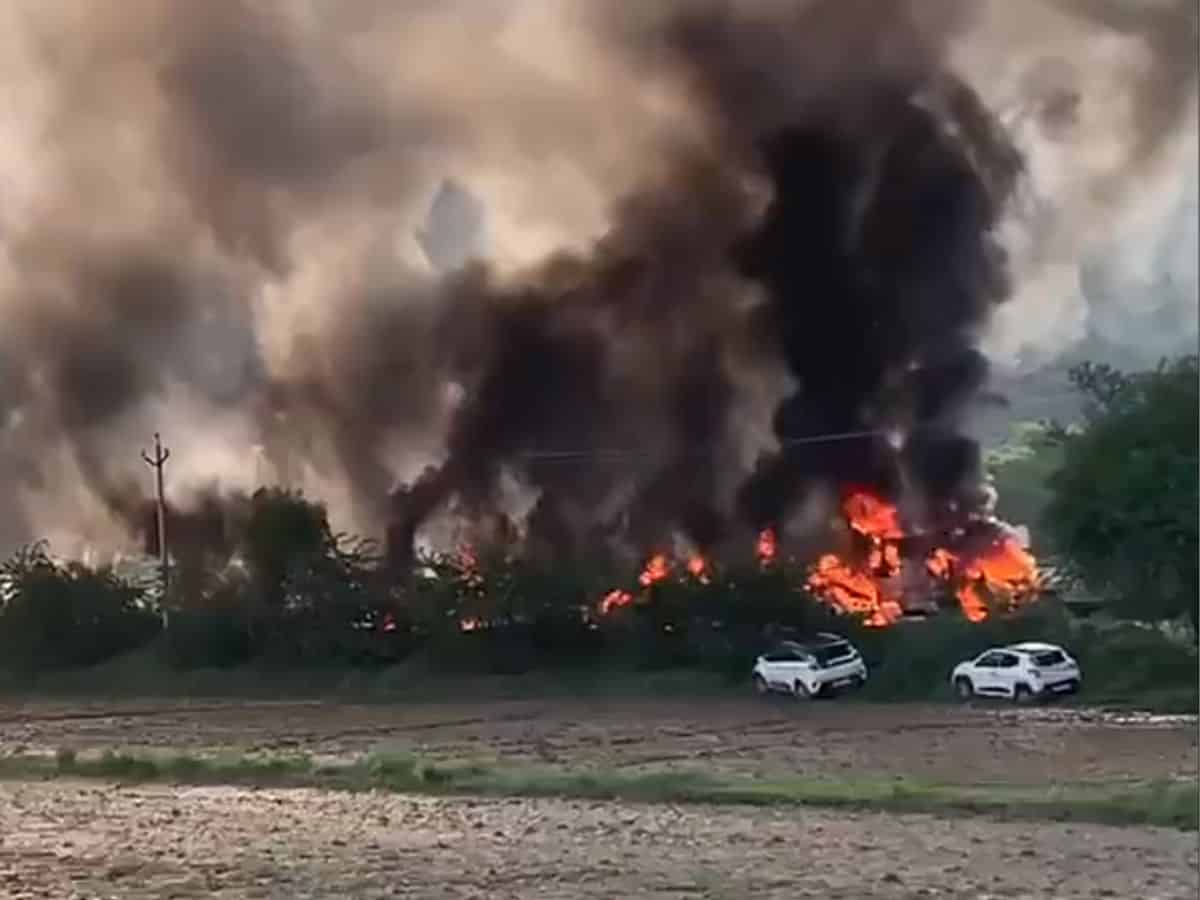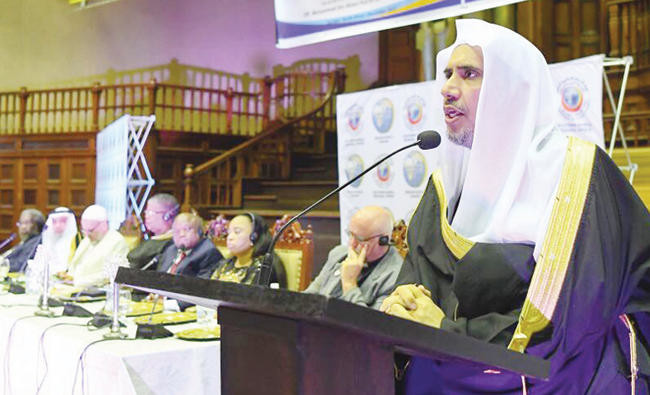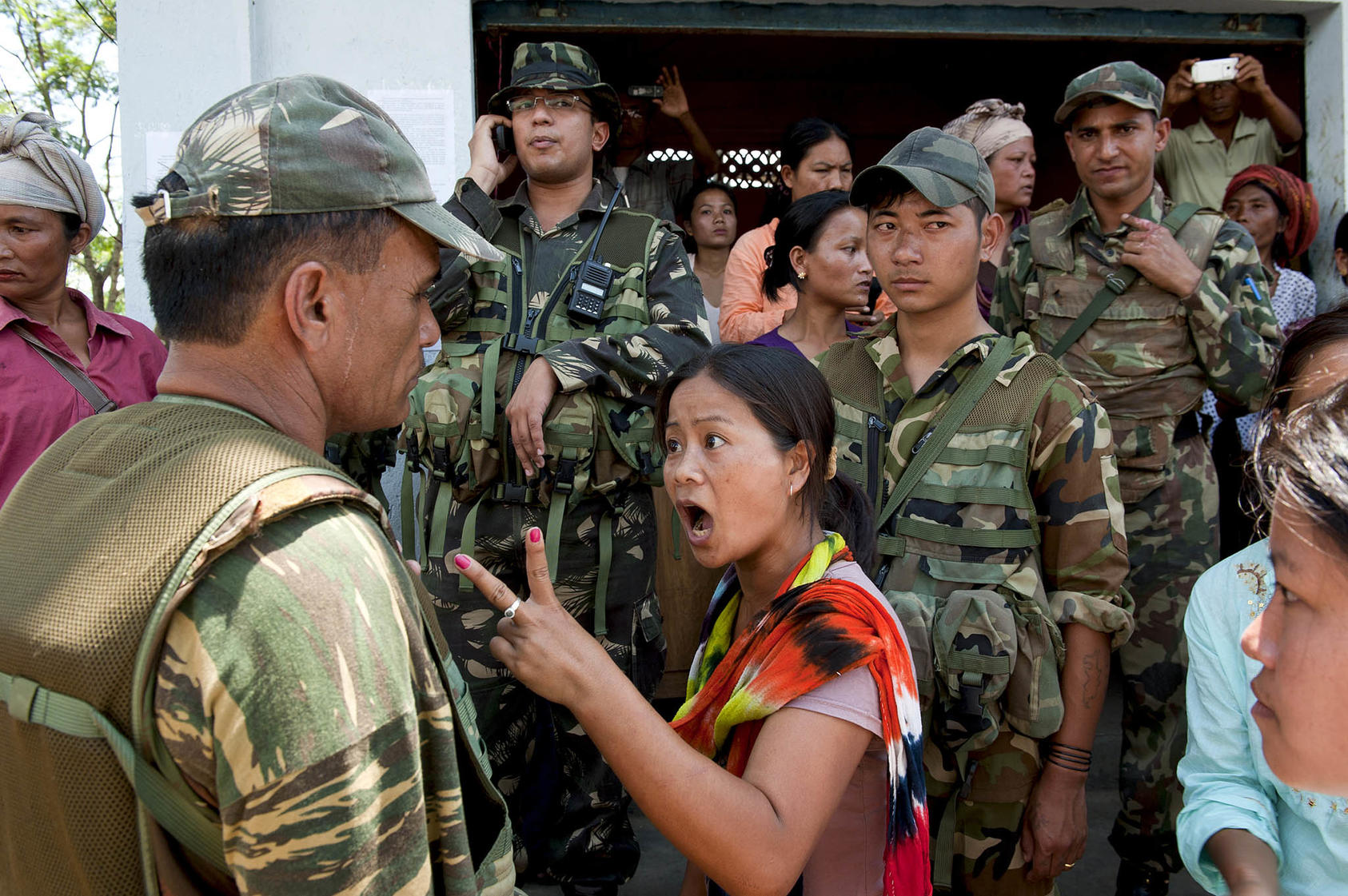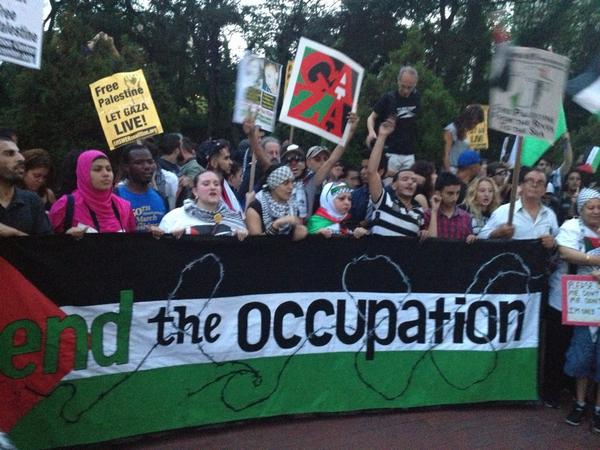An outrage has erupted in India after Israeli director Nadav Lapid described the controversial film The Kashmir Files as “propaganda” and a “vulgar movie” at the International Film Festival of India (IFFI) late on Monday, November 28. Lapid, who was present at IFFI as a jury member, spoke against the inclusion of the film that was inappropriate for an artistic competitive section of such a prestigious film festival.
At the closing ceremony of the 53rd International Film Festival of India. Lapid, the jury chief at this year’s edition of IFFI, also added that he was “disturbed and shocked” to see the film being screened at the film festival. After Lapid’s comments, a severe backlash followed from the Indian public, BJP politicians, and some of the film’s actors on social media, prompting the Israeli ambassador to India Naor Gilon to issue an explanation.
The Kashmir Files, directed by Vivek Agnihotri, revolves around the exodus and killing of Kashmiri Pandits from the Kashmir Valley in 1990. Since its premiere in March, it has been the subject of heated debate, with critics accusing it of distorting history and propelling an alternative view about the Kashmir issue, with the intent to not just provoke but incite an anti-Muslim agenda. The BJP, including the Prime minister, has openly endorsed the film with several states ruled by the party giving the film tax exemptions. The Indian prime minister, Narendra Modi, has praised the film, congratulating its makers for having “the guts to portray the truth” and it was the second highest-grossing film in India this year.
Read here, The Kashmir Files: Is India Hiding Inconvenient Truths
Israeli ambassador Naor Gilon slams Lapid in an open letter for hurting Israel’s Ties with India
Naor Gilon, Israel’s ambassador to India, gave Lapid some of the sharpest criticism, telling him that he should be “ashamed” of his remarks and that it was “insensitive and presumptuous” of him to talk on a matter that has political and religious repercussions in India. The statements made by Lapid calling The Kashmir Files “Vulgar Propaganda” were “unequivocally condemned,” by Gilon.
Gilon said Lapid will go back to Israel thinking that he was bold and “made a statement”. “We, the representatives of Israel, would stay here. You should see our DM [Direct Messages] boxes following your ‘bravery’ and what implications it may have on the team under my responsibility.”
In a series of tweets, Gilon said he felt ashamed and wanted to apologize to their Indian hosts for the bad manner in which they repaid them for their generosity and friendship. Gilon also added he had written an open letter to Lapid.
“It’s not in Hebrew because I wanted our Indian brothers and sisters to be able to understand. It is also relatively long so I’ll give you the bottom line first. YOU SHOULD BE ASHAMED.”
Gilon called the friendship between the states of India and Israel very strong. He also added that India and Israel’s bond will survive the damage Lapid has inflicted.
Also, read Indian Media’s Neglect of The Ruthless Opportunism in “The Kashmir Files”
Lapid’s response to the Israeli Ambassador and the backlash
In a 32-minute interview with Karan Thapar for The Wire, Lapid revealed that he has “received hundreds, maybe thousands, of threatening messages”. However, standing by what he said at IFFI, he mentioned that he stands behind every word that he said about The Kashmir Files.
“In a way it was my duty, my obligation. I was invited to be frank not to speak about vanities.”
“Criticising a movie is not criticising India or criticising what happened in Kashmir,” he added.
When asked about the Israeli ambassador’s remarks who, in a public letter to Lapid, said that he should be ashamed of himself and claimed he had insulted the Indian hospitality and damaged India-Israel relations.
Read here, How Practical is the Secular Democracy of India? Curbing of Religious Freedom in Kashmir
Lapid said: “I feel ashamed of this reaction of an Israeli diplomat.”
He also denied and rubbished the report of Hindustan Times, an Indian English-language daily newspaper, that reported him calling The Kashmir Files “brilliant movie” in an interview with India Today, another Indian media conglomerate.
After his remarks at IFFI, many Indian news outlets also shared information about him apologizing for his remarks.
Speaking to Karan Thapar, he clarified that in a separate interview with CNN-News18, he was only apologizing if he hurt the feelings of the relatives of those who were killed in the exodus, but he was by no means apologizing for criticizing the film.
Also, read Bollywood’s portrayal of Kashmir- Journey Of Representation From Heaven To Hell
Nadav Lapid’s fellow foreign jury members support his stance, excluding Sudipto Sen from their official statement
Lapid’s co-jury members at IFFI Goa this year were Spanish documentary filmmaker Javier Angulo Barturen, French film editor Pascale Chavance, American film producer Jinko Gotoh and Indian film director Sudipto Sen.
While Indian filmmaker Sudipto Sen has told the Indian Express that discussions about the subject of The Kashmir Files were private and that Lapid acted on his own. BAFTA winner Jinko Gotoh made it clear that she and two of her fellow jurors Barturen and Chavance stand by Lapid’s comments at IFFI regarding The Kashmir Files (2022) being a “propaganda” movie. A joint statement signed by them was posted on Twitter from Gotoh’s handle. Clarifying that the jury’s observation on The Kashmir Files was unanimous, the joint statement said:
“At the festival’s closing ceremony, Nadav Lapid, the jury’s president, made a statement on behalf of the jury members stating: We were all of disturbed and shocked by the 15th film, The Kashmir Files, that felt to us like a vulgar propaganda movie, inappropriate for an artistic competitive section of such a prestigious film festival. We stand by his statement.”
This statement was made at a time when many people were speculating that Lapid, a politically conscious director, gave his own viewpoint rather than the jurors’ during the IFFI closing ceremony.
Read here, Kashmiri Pandits Face Targeted Killings
Post IFFI row, Vivek Agnihotri announces ‘Kashmir Files’ follow-up film
Filmmaker Vivek Agnihotri has announced a follow-up movie titled “The Kashmir Files Unreported” to “reveal the real truth” after challenging the IFFI jury and Israeli director Nadav Lapid to disprove the veracity of the events shown in his film The Kashmir Files.
In an interview with Aaj Tak, Agnihotri said, “I will soon reveal if it will be a web series or a documentary. This is beyond art now and is more about the reputation of the country and it is my moral responsibility that whatever proof I have with me, I bring them out and present it in front of people,”.
The much-contested film, which opened to conflicting reactions following its release in March this year, starred Anupam Kher, Pallavi Joshi, Mithun Chakraborty, and Darshan Kumar.
Following Lapid’s remarks, Joshi and Kher both criticised the Israeli director. Lapid was labeled a genocide denier by Joshi, while Kher branded him as “a person who himself is vulgar and an opportunist.”
Also, read The Forgotten Jammu Massacre



 Featured9 months ago
Featured9 months ago


 Featured10 months ago
Featured10 months ago


 Featured2 years ago
Featured2 years ago


 Featured4 years ago
Featured4 years ago


 Featured3 years ago
Featured3 years ago


 Featured10 months ago
Featured10 months ago


 Featured2 years ago
Featured2 years ago


 Featured4 years ago
Featured4 years ago
